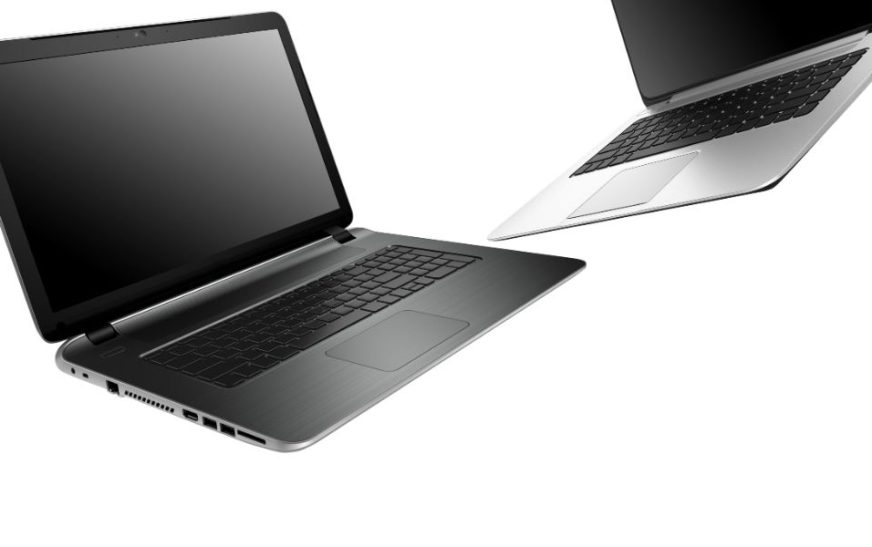In the ever-evolving landscape of technology, quantum computing stands as a beacon of unprecedented progress. This revolutionary leap promises to transform laptops and computers into unimaginable powerhouses, ushering in a new era of computing capabilities. In this comprehensive guide, we delve deep into the quantum age, exploring how it’s poised to reshape the very core of laptops as we know them.
The Quantum Leap: Redefining Computational Power
The heart of quantum computing lies in its fundamental unit: the qubit. Unlike classical bits, which can be either 0 or 1, qubits exist in a superposition of states, allowing for exponentially more data processing. This quantum parallelism means tasks that were once insurmountable for classical computers are now within reach.
Quantum Supremacy and Its Implications
With recent milestones in quantum supremacy, where quantum computers outperform classical ones in specific tasks, the era of practical quantum computing is dawning. This breakthrough opens doors to solving complex problems in cryptography, optimization, and molecular modeling that were previously beyond reach.
Quantum Computing Architectures: A Glimpse Under the Hood
Diving into the inner workings, quantum computers employ various architectures, including superconducting circuits, trapped ions, and topological qubits. Each approach brings its own unique advantages, and ongoing research is shaping the future of quantum hardware.
Quantum Computing and Cryptography: A Paradigm Shift
One of the most profound impacts of quantum computing is on cryptography. Shor’s algorithm, for instance, threatens widely-used encryption methods. This prompts a race to develop quantum-resistant encryption protocols to secure our digital infrastructure.
Quantum Machine Learning: Pioneering New Frontiers
The marriage of quantum computing and machine learning holds immense promise. Quantum algorithms can exponentially accelerate tasks like pattern recognition, optimization, and complex simulations. This convergence could lead to breakthroughs in fields ranging from healthcare to finance.
Quantum Computing in Laptops: A Glimpse into the Future
The integration of quantum computing into laptops is on the horizon. Quantum co-processors, working in tandem with classical processors, promise to unlock unparalleled performance gains. This hybrid approach bridges the gap between quantum and classical computing.
Challenges on the Path to Quantum Laptop Domination
While the potential is immense, challenges persist. Quantum computers require ultra-low temperatures and precise environments, making scalability a formidable hurdle. Additionally, error correction and software development for quantum systems are areas of active research.
Quantum Computing and Gaming: Redefining the Experience
Gaming enthusiasts are in for a treat. Quantum computing’s parallelism and optimization capabilities could revolutionize graphics rendering, AI-driven gameplay, and complex simulations, delivering an immersive gaming experience like never before.
Final Words: Pioneering a Quantum Future
As we stand at the precipice of the quantum age, the implications for laptops and computers are nothing short of revolutionary. The fusion of classical and quantum computing promises to redefine what’s possible, opening doors to solutions that were once mere fantasies. Brace yourselves for a future where the boundaries of computation are pushed beyond imagination.
Commonly Asked Questions
1. How soon can we expect quantum-powered laptops to hit the market?
While prototypes exist, widespread availability is on the horizon. Experts estimate a timeline of 5-10 years for quantum-enhanced laptops to become commercially viable.
2. How will quantum computing affect everyday tasks on laptops?
Tasks like complex simulations, cryptography, and machine learning will see exponential speed-ups. Everyday computing will become more powerful and efficient.
3. Are there security concerns with quantum computing?
Indeed, quantum computing poses challenges to current encryption methods. However, research is underway to develop quantum-resistant cryptographic protocols.
4. Will quantum computing make classical computers obsolete?
Not at all. Quantum and classical computing will likely coexist, each serving tasks for which they are best suited. Quantum computers will excel at certain complex calculations, while classical computers will continue to handle everyday computing needs.
5. What industries will benefit most from quantum-enhanced laptops?
Industries like pharmaceuticals, finance, logistics, and artificial intelligence are poised to reap tremendous benefits. Quantum computing’s optimization and simulation capabilities have far-reaching applications in these sectors.


























